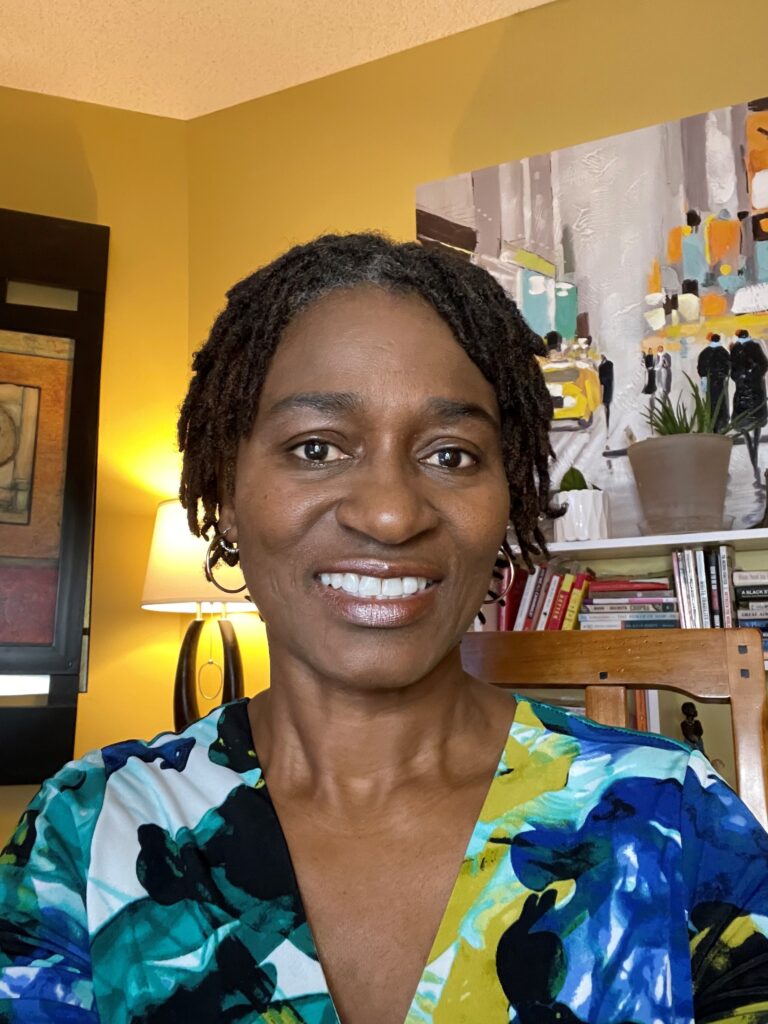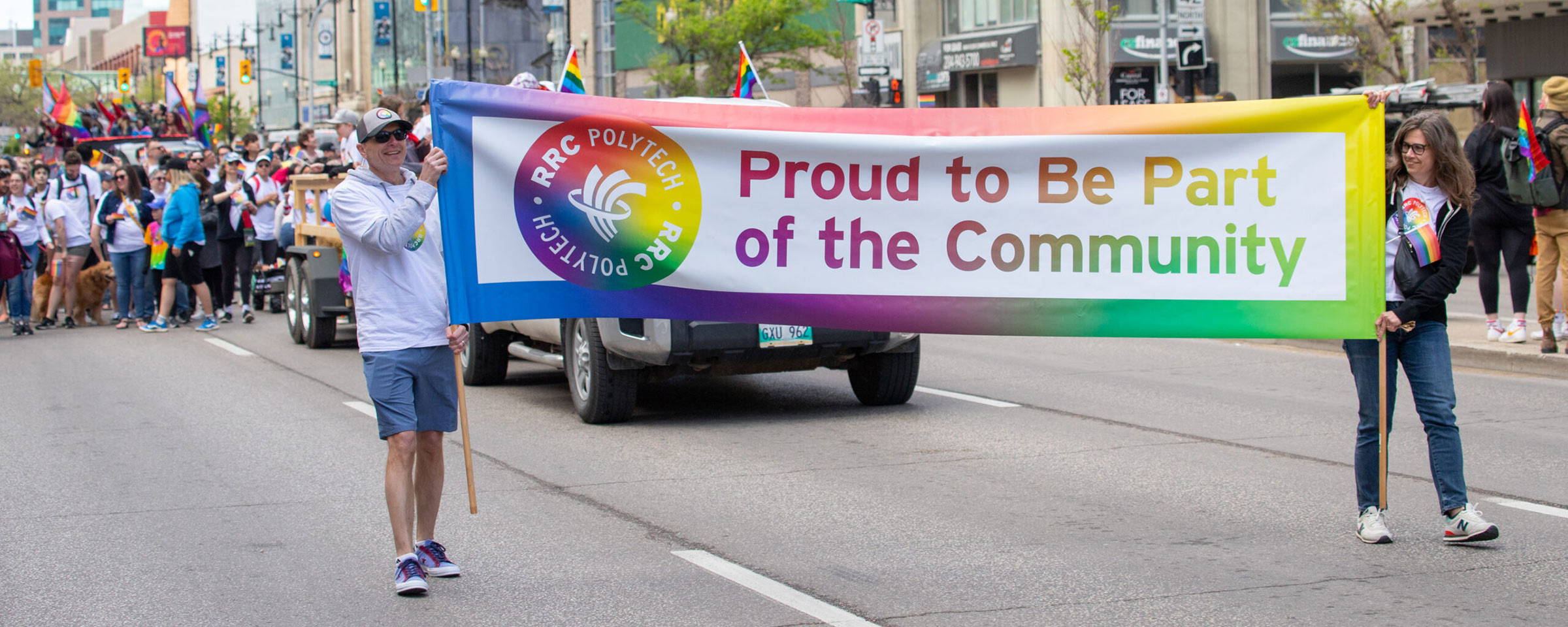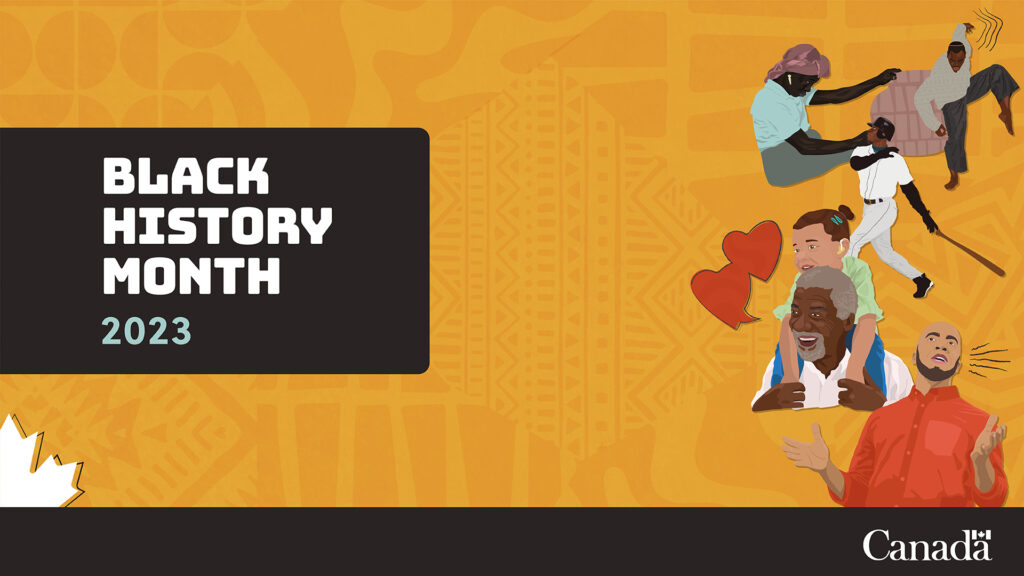Sharing Stories for Black History Month: Phyllis Reid-Jarvis
February is Black History Month, an opportunity to acknowledge and celebrate the achievements and contributions of Black Canadians and their communities, who have been a part of shaping Canada’s heritage and identity. Throughout February we will be highlighting and sharing the stories of Black staff, students, members of our Board of Governors as well as alumni. Stay tuned to the Diversity blog and RRC Polytech’s social media to learn more about members of our College community
Phyllis Reid-Jarvis, Board of Governors, RRC Polytech
The Journey

Phyllis Reid-Jarvis (she/her) MPH, PCC, CEO/Founder of Ultimate Potentials Corporation.
My work at Ultimate Potentials Corporation as a leadership and talent development consultant focuses on helping leaders see where change needs to occur. I work with leaders to support their organizations in achieving workplaces designed for all employees to thrive. With over 25 years of combined experience in health, leadership, talent development, and social justice, I help leaders create transformative, diverse, equitable, and inclusive workplaces.
My professional journey has been filled with varying experiences, and now, looking back, all have prepared me well for where I am today. The word circuitous best describes my career path. It began at Mico Teachers’ College in Kingston, Jamaica, where I started training preparations to be a science teacher. Alas, this was interrupted when I immigrated to Manitoba with my parents in 1985.
I continued with my education upon arriving in Manitoba. I decided to switch career paths to pursue becoming a Registered Dietitian, a career in which I worked for almost twenty years. Despite having significant success as a Registered Dietitian, it was fraught with many barriers of exclusion and a need for more available and culturally-appropriate mentoring and support to help understand the Canadian culture and its practices of professionalism. Highlights of my career as a Registered Dietitian include publishing two books on Solutions for health, working with CBC Radio as a health columnist on a weekly show, Food for Thought, representing Dietitians of Canada in Granada, Spain as a speaker at the annual International Congress of Dietetics and member of Breakfast for Learning Canada Board of Governors.
I am fortunate to belong to a family and community that taught me early in life to be proud of who I am and not to conform to society’s ideals of whom they think I should be. I use this to transform barriers into opportunities. This is a crucial mindset I continue to use today and teach, coach and mentor others to adopt as a transformative tool.
Importance of Representation
I arrived in Manitoba to discover that I was Black. Coming from a culture where one identifies with their country of origin, I was taken aback by ‘others’ need to reduce me to the superficiality of the colour of my skin! The silent racism below the surface of friendly Manitoba struck me.
I am reminded of how the abuse of power and authority by one of my professors in my 4th year at University was intended to deny me representation. I was getting A’s and high B+’s in most of my courses and was a recipient of the Alumni Association award for high-grade point average, but I could only seem to get a low B at best from this professor.
I needed appropriate references to pursue my career as a Registered Dietitian, among other criteria for acceptance into the program. I booked an appointment to ask this professor if she would stand as a referee. Without skipping a beat, she said, “sure, but I don’t think you would like what I have to say.”I asked, “what do you mean?” She looked me in the eye and said, “We don’t want your kind in our program.” Again, I asked, “what do you mean?” She held her arm up and ran her fingers back and forth over it. It took me a few seconds to grasp the meaning of her gesture. I asked, “do you mean because my skin is black?” She folded her arms and leaned back in her chair. The meeting was over. This experience is one of many but is the most blatant form of denial of representation.
I am fortunate to belong to a family and community that taught me early in life to be proud of who I am and not to conform to society’s ideals of whom they think I should be. I use this to transform barriers into opportunities. This is a crucial mindset I continue to use today and teach, coach and mentor others to adopt as a transformative tool.
Contributions to the Board of Governors
My varied experience over the years helped shape what I bring to the table as a member of the Board of Governors at RRC Polytech. My lived experience and professional experience more than equip me to support RRC Polytech in achieving its strategic priorities. This is seen particularly around RRC Polytech’s commitments to talent development for the Province, the recommendations of the Truth and Reconciliation Commission of Canada’s ( TRC) calls to action regarding Indigenous education and representation, and the pursuit to achieve Equity, Diversity and Inclusion by removing barriers to access and representation for equity-seeking Manitobans (persons who self-identify as a Person of colour, Asian, African, Caribbean, or African/Caribbean or Black) and marginalized Manitobans (Persons with disabilities and members of 2SLGBTQIA+).
I believe deeply in RRC Polytech’s commitment to its strategic priorities. I am honoured to be among fellow volunteers, students and staff who are also deeply committed to realizing RRC Polytech’s strategic priorities.
Aspirations
I do this work because I know it’s important for everyone to be included, supported and recognized. I want to normalize these actions and make this known to fellow Manitobans. I will know we are successful when as Manitobans, we no longer are governed by blatant or worse, silent racism in our communities, workplaces and learning institutions. Success is realized when the TRC’s calls to action are fully implemented. When marginalized Manitobans (Persons with disabilities, members of 2SLGBTQIA+) and equity-seeking Manitobans (persons who self-identify as persons of colour, Asian, African, Caribbean, or African/Caribbean or Black) share 100% freedom, just like their white Canadian brothers and sisters.
“ We do not need first to be perfect before we can do what is right and just.” Chimamanda Ngozi Adichie. Nigerian author and activist.

